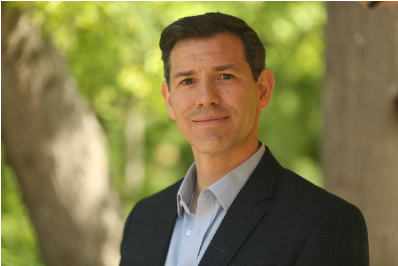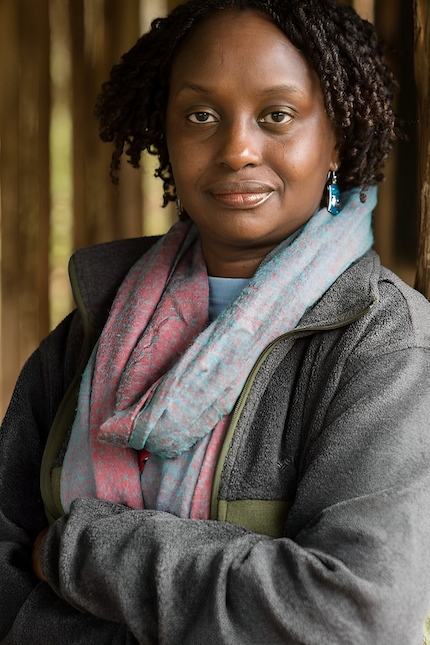Preventing the emergence of zoonotic diseases is a cross-sectoral issue that encompasses many challenges. Climate change appears to be one of these major drivers: As the planet faces the effects of climate change, the risk of zoonosis emergence increases. It is then vital to align research efforts and establish global synergies between operational agendas. On the 26th of June, we organized a Webinar on the topic. The discussion explored the impact of climate change on the emergence of zoonotic diseases and propose recommendations for future actions.
The roundtable welcomed Dr. Jon Epstein, Epidemiologist, Disease Ecologist, and Leader in Global Health and Pandemic Preparedness (ex. EcoHealth Alliance); Dr. Gladys Kalema-Zikusoka, founder and Chief Executive Officer of Conservation Through Public Health, UNEP Champions of the Earth; Prof. Jan Semenza, environmental epidemiologist, Department of Sustainable Health at Umeå University in Sweden and Heidelberg Institute of Global Health; Dr. Cyril Caminade, physicist, climatologist, specialist of early warning systems. (See bios below)
Climate change, with extreme weather events, has a significant impact on the survival and distribution of hosts, vectors, and pathogens.
The emergence of zoonotic diseases can be attributed to a number of factors, including biodiversity loss, land use, and international mobility of people, livestock, and goods. It is an increasingly recognized fact that climate change is a major driver of emerging infectious diseases. Extreme weather events, including floods, severe droughts, storms, and wildfires, in conjunction with gradual shifts in temperature and precipitation patterns, can profoundly alter ecosystems. This, in turn, can influence the survival and distribution of hosts, vectors (e.g. mosquitoes and ticks), and pathogens.
It is essentiel to synchronize research and set up global synergies between operational agendas against zoonotic disease emergence, climate change, and biodiversity loss in the post-COVID-19 era.
As the planet undergoes global warming, formerly inhospitable regions can become more conducive to the proliferation of vectors, and diseases previously confined to tropical regions are now appearing in previously unaffected areas. This includes the propagation of diseases such as Crimean-Congo hemorrhagic fever, Rift Valley fever, and West Nile virus into previously unaffected regions.
Furthermore, an increase in temperature has been demonstrated to extend the period during which vector-borne diseases can be transmitted, thus widening the timeframe in which outbreaks can occur.
Disruptions to natural habitats—driven by climate-related stressors such as deforestation and resource scarcity— also force wildlife into closer proximity with human populations, creating more opportunities for zoonotic spillover. These dynamics have already been linked to the rising incidence of diseases such as Lyme disease, dengue, and Nipah virus in areas where they were previously rare or absent.
Meet our Speakers

Dr. Jonathan Epstein, Veterinarian and Epidemiologist
Dr. Jon Epstein is a veterinarian and epidemiologist whose research focuses on the ecology and spillover of zoonotic viruses from wildlife into domestic animals and people, particularly those viruses associated with bats, such as Nipah virus, Ebola, and zoonotic coronaviruses. Dr. Epstein frequently collaborates with government health and wildlife agencies in the US and abroad, as well as intergovernmental institutions such as the WHO, WOAH, FAO, Africa CDC, and IUCN, to help develop zoonotic disease surveillance systems. Dr. Epstein mentors graduate students through adjunct faculty appointments at Tufts Cummings School of Veterinary Medicine, Harvard University and Columbia’s Mailman School of Public Health. His research has been published in leading scientific journals such as Science, Nature, PNAS, and Cell and has been featured on 60 Minutes, CNN, the PBS documentary Spillover, The New York Times and other news media. He was the Chief Scientific Advisor for the exhibit Outbreak: Epidemics in a Connected World, which opened at the Smithsonian Institute’s National Museum of Natural History in 2017.
https://www.onehealthscience.com/

Dr. Gladys Kalema-Zikusoka, Founder and CEO of Conservation Through Public Health (CTPH)
In 2000, she enrolled in a Zoological Medicine Residency and Master in Specialized Veterinary Medicine at North Carolina Zoological Park and North Carolina State University, where masters research on disease at the human/wildlife/livestock interface led her to found CTPH in 2003. In 2003, she also completed a certificate in non-profit management at Duke University. In 2015, she founded Gorilla Conservation Coffee to support farmers living around habitats where gorillas are found. CTPH’s most recent award is the 2020 Saint Andrews Prize for the Environment.
Dr Kalema-Zikusoka became an Ashoka Fellow in 2007, a National Geographic Explorer in 2018 and a Mulago Foundation Henry Arnhold Fellow in 2018. In 2023, she received an honorary doctorate from her alma mater, Royal Veterinary College, University of London. She also serves on the Daughters for Earth’s Wise Daughters Council.
She won the 2008 San Diego Zoo Conservation-in-Action Award, 2009 Whitley Gold Award;
2011 WINGS Women of Discovery and Exploration Humanity Award, 2017 President of Uganda’s Golden Jubilee Award for her contribution to the nation as a veterinarian and conservationist, 2018 Sierra Club EarthCare Award, and was a finalist for the 2019 Tusk
Award for Conservation in Africa. In 2020, she received the Uganda Veterinary Association
World Veterinary Day Award, Aldo Leopold Award for Mammologists and became a
COVID-19 heroine for the Ellen Johnson Sirleaf Foundation. In 2021, she was recognised by
Avance Media as one of the 100 Most Influential Women in Africa and won the United
Nations Environment Program Champions of the Earth Laureate in the Science and Innovation Category. In 2022, she received the Edinburgh Medal for Science and Humanity for her work in planetary health, and won the Tallberg-SNF-Elliasson global leadership prize. In 2023 she was a finalist for the Indianapolis Prize for Animal Conservation, and was recognised as a Population Matters World Population Day Change Champion in the Earth Champion category. BBC 100 Women recognized Dr Kalema-Zikusoka in their 2023 100 inspiring and influential women in the climate pioneer category, ahead of COP28. In 2024, she won the Mammal Society President’s Award, the Forum for Women in Democracy
(FOWODE) Tourism Sheroes Award, the African Primatological Society Lifetime
Achievement Award, and, most recently, the Woman Champion of Sustainable Tourism Award at the Ekkula Awards. Recently, she was also featured on CNN’s Call to Earth in a documentary titled King of the Forest, as well as in another documentary, Hidden Uganda, which aired on CBS.
She is currently the Chairperson of the Explorers Club Africa Chapter, on the leadership council of Women for the Environment – Africa; and Vice President of the African Primatological Society. In 2021 she became a member of the WHO SAGO – Scientific Advisory Group for the Origin of Novel Pathogens, and joined the advisory committee of the International Livestock Research Institute (ILRI) One Health Research, Education, and Outreach (OHRECA).
Dr. Kalema-Zikusoka is the author and co-author of 2 books and over 60 papers and book chapters. Her most recent book was published in 2023, a memoir “Walking with Gorillas: the Journey of an African Wildlife Vet, about her conservation and leadership journey shaped by One Health. https://ctph.org/meet-the-team/

Prof. Jan Semenza, Environmental epidemiologist
Prof. Jan Semenza is an environmental epidemiologist with research interests in climate change and public health. He led the US CDC response to the 1995 heat wave in Chicago that claimed the lives of more than 700 people and elucidated the underlying environmental, societal, and behavioural risk factors for heat-related mortality.
He also worked internationally in Uzbekistan, Sudan, Egypt, Denmark, Brazil, and Haiti. He was a faculty member at UC Berkeley, UC Irvine, Oregon Health and Science University, and at Portland State University, where he taught in the Oregon Master Program of Public Health.
Most recently, he was the head of the Health Determinants Section at the European Centre for Disease Prevention and Control (ECDC), where he analysed and monitored determinants of infectious diseases, such as climate change. He was a lead author of the IPCC AR6 report and the co-lead of WG1 and WG2 of the Lancet Countdown in Europe. Currently, he is associated with the Department of Sustainable Health at Umeå University in Sweden and Heidelberg Institute of Global Health at the University of Heidelberg in Germany.
https://mentor-initiative.org/person/jan-semenza
Dr. Cyril Caminade, Physicist & climatologist
Dr. Cyril Carminade is originally trained as an applied physicist & climatologist. He obtained his PhD on climate variability in Sub-Saharan Africa at CERFACS and at the Université Paul Sabatier in Toulouse in 2006. In early 2008, Cyril moved to the University of Liverpool to study the impact of climate variability and climate change on the risk posed by several key vector-borne diseases, such as malaria, dengue, Zika, Rift Valley Fever, plague, bluetongue, fascioliasis, haemonchosis and invasive vector species such as the Asian tiger mosquito. Cyril is a multidisciplinary scientist with broad scientific interests (computing, physics, climate and climate change, statistics, epidemiology, risk modelling, public health, tropical diseases…). He is now working on modeling the impact of vector control measures at the Abdus Salam International Centre for Theoretical Physics in Trieste, Italy. https://sites.google.com/site/climatecam/cv